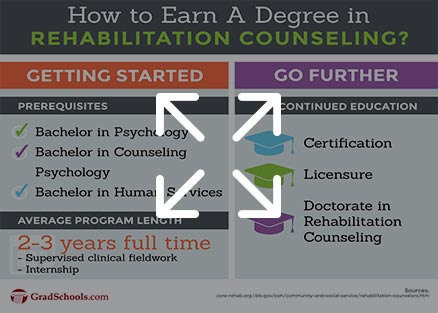Desoxyn Addiction Rehab Programs Church Creek MD
Home
Desoxyn Addiction Rehab Programs Church Creek MD
Desoxyn Addiction Rehab Programs Church Creek MD
After your finish your 30-60-90 DAY drug addiction program you and your counselor will develop an aftercare plan in order to avoid relapse. Recognizing When Drug Treatment Is Necessary The first step in getting help for drug abuse is recognizing that there is a problem. While it is important that alcoholics and addicts learn how to live life without drugs and alcohol, and that it can take quite some time to reverse old thinking patterns, some feel that continually immersion in the twelve steps community can actually prevent the person from ultimately reaching their full potential. Here is a list of some information helpline staff may ask from you: Which substance/drug does the person abuse? Eternal Awakenings in Gonzales is a Christian drug and alcohol rehabilitation facility located in a historic mansion. If you are seeking a drug overdose helpline, immediately call 9-1-1 or the National Poison Control Center at 1-800-222-1222.
9-1-1 Available 24 Hours The National Poison Control Center This number offers a free, confidential service that allows you to speak to a poison control professional (including cases involving drugs and/or alcohol). Whenever you face difficulties in overcoming drug addiction on your own, call Narcotics Anonymous hotlines and helplines 1-888-328-2518. To overcome addiction and remain drug and alcohol free, the individual needs to have a strong foundation in their faith and patience that the Lord will help them, when all seems to be lost. Drug Rehab Center Hotline is an online service here to assist you with Texas drug addiction treatment help and resources. If you or a loved one has lost their way and been trapped in the never-ending cycle of drug addiction we are here to assist you.
Even more Information Around Secobarbital Addiction Rehab Program

Even more Info About Symtan Abuse Centers Church Creek MD
In fact, next to marijuana, prescription painkillers are the most abused drugs in the U. Though the authors expected the two-factor theory to be the most effective, it actually proved to be deleterious in outcome. We make the best Christian treatment programs available, and provide the most effective: Inpatient Services Outpatient Services Long-term Rehab Short-Term Rehab Aftercare Transitional Living Options Philippians 4:13 “I can do all things through Him who strengthens me.” Pick up the phone and call us! Protect yourself, your health, your finances, and your assets. THE FIRST PHASE OF TREATMENT: Initial Evaluation and Assessment The initial evaluation is needed for doctors and counselors to discover more about you, your drug addiction issue, and your overall physical and mental health. I was doing laundry … Smoking it isn't less harmful or less addictive. I've been smoking heroin and occasionally ice for 5 years.
Right here are Some More Resources on Secobarbital Addiction Rehab Program
Make sure you have people you can talk to and lean on for support. Experiencing legal trouble, such as arrests for disorderly conduct, driving under the influence, or stealing to support a drug habit. Problems in your relationships, such as fights with your partner or family members, an unhappy boss, or the loss of friends. Have they become unusually unreliable or calling in sick/late for work? That’s why many people believe that Christianity and rehab can help save you from addiction.
Here are Some More Details on Secobarbital Addiction Rehab Program Church Creek MD
It does not care if you are living on the street or living in a Park Avenue apartment. As addicts, we have many things that are unhanded in our lives. On graduation day at BDR, the patients who have completed their program are given roses to give out to those who have helped them the most on the path to recovery. Do you continue to take drugs, despite protests from your loved ones? Finally, decision-making processes are implicated in the relapse process as well. Treatments for prescription drug abuse tend to be similar to those for illicit drugs that affect the same brain systems. Call us today to learn more about entering a drug rehabilitation program. 1-800-819-9973 For further assistance please feel free to contact us by phone. Substance Abuse is Expensive In the long run continued abuse of drugs and alcohol will cost more than getting treatment. Relapse prevention[edit] An influential cognitive-behavioral approach to addiction recovery and therapy has been Alan Marlatt's (1985) Relapse Prevention approach.[34] Marlatt describes four psychosocial processes relevant to the addiction and relapse processes: self-efficacy, outcome expectancies, attributions of causality, and decision-making processes.
Click Here for More Information
Previous Next
You may also like:
Duodin Addiction Centers Paradise Inn WA
Peyote Rehab Treatment Centers Woody Creek CO
Librium Rehab Facilities Kinsale VA
Steroids Detox Treatment Facility Burnett WI
Zydone Detox Near Me Indianola IA
Percodan Rehab Treatment Facilities Newhall CA
K2 Detox Treatment Facilities Hatfield PA
Carisoprodol Addiction Treatment Program Glen Lyon PA
Addiction Christian New Rockford ND
Morphine Rehab Facilities New Haven IL
Focalin Addiction Detox Facilities Langsville OH
Non 12 Step Addiction Recovery Hamilton VA
Biphetamine Abuse Treatment Programs Sears MI
Endocet Addiction Rehab Centers Von Ormy TX
Butorphanol Addiction Facility New Hope AL
Duramorph Detox Facilities Ojo Feliz NM
Clonazepam Abuse Facility Lancaster WI
Ghb Addiction Rehab Facility Buffalo OK
Diazepam Detox Treatment Facilities Franklin LA
Private Rehab Facilities Wendell Depot MA